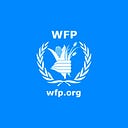Savings groups in Zambia empower smallholder farmers to access loans
Community loans help farmers earn additional income
Sophie Smeulders
“I can’t imagine what life would be like without my savings group,” says smallholder farmer Florence Banda who is part of the Chipanda savings group. “There are so many ways saving has helped me — I will never stop saving.”
For Florence, a 61-year-old mother of six, her savings group is an important part of life — it offers a lifeline during emergencies and helps her to access loans and invest in business.
Just like most of the smallholder farmers in her village, her dreams of growing crops are sometimes crushed by unpredictable rainfall patterns, floods and dry spells. On top of that, due to their physical and economic isolation, most smallholder farmers are excluded from lucrative markets and access to farming inputs and loans.
The United Nations World Food Programme (WFP) is working with smallholder farmers like Florence across the country to help them form savings groups to navigate these challenges. The groups are trained in a ‘Savings for Change’ method that includes business skills and financial management, which also helps farmers to save and borrow from their group’s fund at an agreed interest rate.
Florence’s group saves for nine months and shares out the money at the end of the cycle according to individual savings, plus interest earned from borrowing and penalties.
“In the first cycle, I saved ZMW 500 and got a share-out of ZMW 2,500,” explains Florence. “I then continued to save in the following two cycles and started a business with my share-outs.”
In the first two cycles, Florence used her share-out to buy iron sheets for her home ceiling and sofas for her house. In the third cycle, she bought early maturing soybean seeds from Good Nature.
WFP introduced the savings group to Good Nature and encouraged them to plant early maturing soybeans, which are drought resistant.
“I purchased two 25kg bags of seeds and harvested 250kg bags of soybeans out of that,” says Florence. “We never used to grow soybeans in this area, but now we are motivated to do so.”
Apart from the share-out, Florence’s favourite thing about the savings group is the social fund, a component of the ‘Savings for Change’ methodology that allows members to pull from the groups resources when they face adversities such as illness or bereavement.
For successful and viable savings groups like Florence’s, WFP connects them to financial providers to help them access group loans to grow their businesses in new ways.
Loans are sent to group accounts through mobile money. For transparency and security, the group account has a three-pin system where no one person can access the money unless all three enter the pin. When a transaction is made, a message is sent to all group members.
Harrison Mwanza, President of the Chipanda savings group, explains how their group loan is helping the members.
“Our group got a loan of ZMW 20,000 from Vision Fund with a repayment period of six months,” explains Harrison. “To diversify income sources, some members used the loan to start selling groceries, others decided to start buying and reselling soap and cakes and as of today, even though it’s the lean season when most people are struggling, we are finding it easy paying back the loan as we invested well and are earning additional income .”
Micheal Banda, Vision Fund Savings Officer in Eastern Province, says that savings groups and loans are like bicycle pedals — you need both to move forward, and you can’t have one without the other.
“Smallholder farmers tell their friends and other groups how they set up their businesses with loans, so our support has a ripple effect,” said Michael.
WFP’s support to savings groups in Katete District of Zambia is supported by generous donations received from the Swedish International Development Cooperation Agency (SIDA)
Read more about WFP’s work in Zambia
